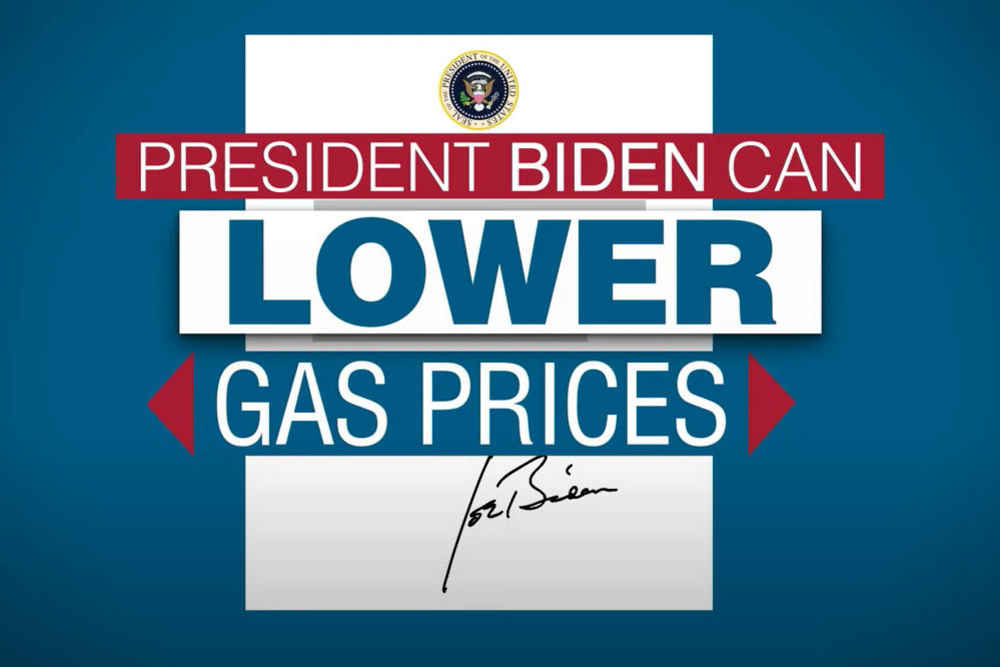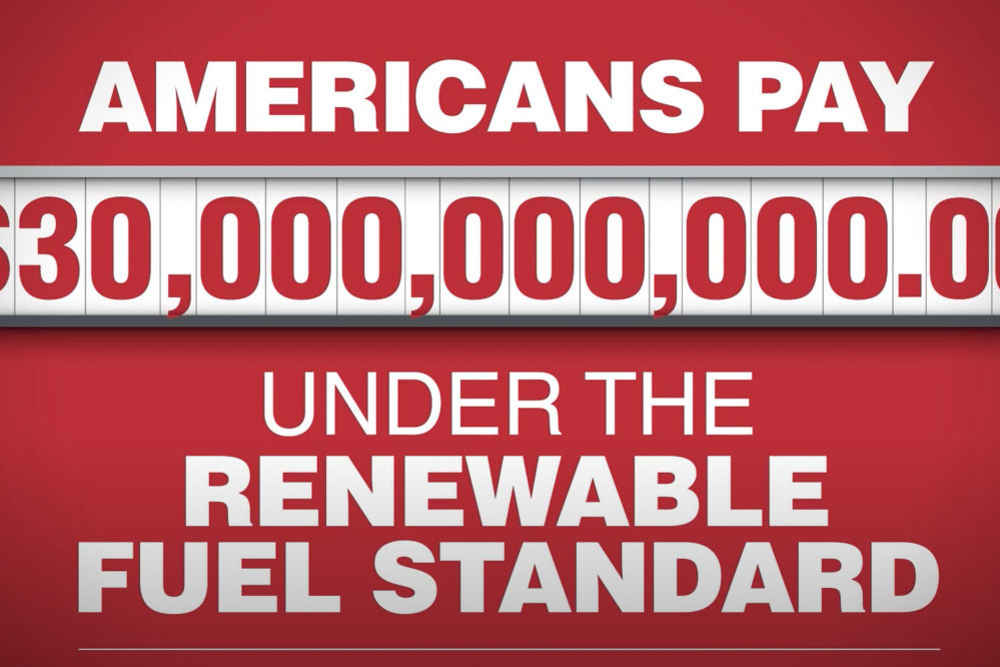The Biden White House increased the biofuel blending mandate under the Renewable Fuel Standard (RFS) last week despite months of warnings that this move will increase prices for consumers at the pump and put unsustainable pressure on America’s independent refiners.
Last week, for the first time ever, the national average price of gasoline in the U.S. reached an astounding $5 per gallon, according to GasBuddy, the nation’s top fuel price tracking service.
America’s independent refiners have ramped up production to meet increasing fuel demand, but many are still struggling to regain their footing after the fuel demand destruction and financial losses caused by government lockdowns associated with the COVID-19 pandemic. The U.S. has lost [fuelingusjobs.com] nearly 1.4 million barrels per day of refining capacity since 2019.
The broken compliance scheme of the RFS is also exacerbating this crisis. Over the last two years, independent refiners have reportedly spent more to purchase Renewable Identification Numbers – RINs, what EPA calls the “currency” of the RFS – than any other operational cost, combined, year after year. Curiously, refining is the only sector the U.S. government forces under penalty of law to buy credits on an unregulated market from competitors, Wall Street firms, and speculators to prove that a third-party has blended a federally required ingredient into a product.
America’s weakened refining capacity – compounded [fuelingusjobs.com] by the unsustainable costs of the RFS – is contributing [bloomberg.com] to the significantly higher consumer fuel prices we are seeing today. Meanwhile, RIN prices have become a hidden tax for the American consumer, adding up to 20 to 30 cents per gallon [fuelingusjobs.com].
As gas prices reach record highs each passing day, the Biden administration continues to incorrectly insist that it has run out of options to lower consumer fuel prices.
Secretary of the U.S. Department Transportation Pete Buttigieg has pushed back on criticisms that President Biden’s efforts to stabilize global oil prices have fallen short, asserting that, “the price of gasoline is not set by a dial in the Oval Office.”
Secretary of the U.S. Department of Commerce Gina Raimondo repeated similar talking points on CNN [cnn.com] later that week, claiming the “brutal reality” is that “there isn't very much more to be done” to protect consumers from climbing prices at the pump.
The truth is, with the stroke of a pen, President Biden can lower gas prices for American consumers and support America’s independent refiners, as well as the thousands of workers they employ, by fixing the broken RFS—but again and again, he chooses not to.
The RFS adds an approximated $30 billion to domestic fuel costs [fuelingusjobs.com] annually due to the out-of-control, skyrocketing cost of RINs. The White House had a clear opportunity to fix the RFS, lower RIN prices, and lower consumer fuel costs.
Instead, the Biden White House approved the Environmental Protection Agency’s (EPA’s) plan [fuelingusjobs.com] to increase biofuel blending levels for 2022, even though proposed levels do not match estimated demand – the same logic the agency used to retroactively lower the 2021 mandate. That means EPA’s now finalized 15-billion-gallon ethanol mandate for 2022 will be impossible to meet, which they know.
This move has drawn criticism from members of Congress who urged President Biden to fix the RFS.
Senators Tom Carper, Chris Coons, and Congresswoman Lisa Blunt Rochester (all D-Del.) [epw.senate.gov] said in a joint statement they are, “disappointed the agency failed to adjust its 2022 volume obligations despite good reasons to do so. As we warned earlier this year, the 2022 levels do not reflect what is likely to occur in the fuels marketplace this year.”
“Volatile prices for complying with the renewable fuels standard have already harmed our nation’s independent refineries this year,” the Delaware Congressional delegation continued. “Those prices continue to trend toward record-breaking highs, squeezing our fuel producers as they look to comply with the program and creating uncertainty for the skilled union workers that are the backbone of our community and our regional [fuelingusjobs.com] economy.”
In a series of tweets, U.S. Senator Pat Toomey (R-Pa.) [twitter.com] said that raising the RFS mandate, “will cost Americans even more when they fill up their tanks and continue to drive up food costs,” who are also seeing unprecedented increases, directly tied to corn, soy, and canola being used to manufacture biofuels.
“The nationwide avg/ gallon of gas costs $4.54. Included in that cost is 20-30 cents/ gallon due to RFS compliance. The higher the renewable fuel volume requirement the higher the cost of gas will be for consumers without any tangible benefit,” Senator Toomey continued. “Furthermore, corn that’s mandated to end up in car engines can’t end up on Americans’ plates – making the cost of feeding your family even more. The American people need relief, not regulatory burdens [and] additional costs.”
Today, the average cost of gasoline is being reported by CNBC as $5.01 per gallon.
Despite record-high gas prices and increasing concerns about our nation’s refining capacity, the White House ignored warnings – and calls for help – from independent refiners, elected officials, union leaders and businesses alike.
“Instead of providing the refining industry with relief, certainty, and predictability to overcome global market disruptions, EPA’s broken biofuel mandate continues to saddle refiners with RIN volatility and financial uncertainty,” the Fueling American Jobs Coalition [fuelingusjobs.com]said in a statement.
“American consumers will continue to pay the price for this broken regulation, too.”



